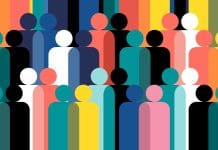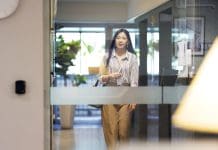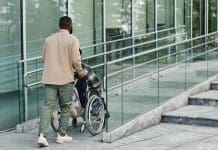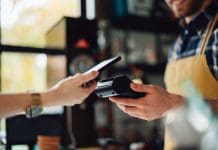Ian Streets of About Access discusses creating a network of access consultants.
There’s no confirmed collective noun for access consultants, but the level of co-operation is such that maybe we should try and think of one.
The collaboration comes from the fact that most practitioners in our profession are small firms. There are some big operators as well – global concerns working on major projects and policy – but ours is principally the domain of compact teams and sole traders, providing specialist services which are flexible and affordable.
Those attributes are particularly important in a sector which often has to fight to be heard, and where accessibility can be the first casualty of such concepts as value engineering.
These are some of the things we talk about when we get together to compare notes and case studies, and to advise commissioning bodies, local authorities and developers on the merits or otherwise of a new building.
Access consultants recognise there is a danger of us floating away into a bubble, so we talk to each other, picking each other’s brains and exchanging ideas.
Often, we work together on some projects and we tap into various networks, exchanging ideas and advice and questioning guidance. That makes us look at the information that is out there in a different way and consider more carefully whether it is correct and appropriate.
Are we just following guidance for the sake of it? Or because we have always done it? Should we look at different perspectives? Should we look at legislation in a different way and apply a different interpretation?
We bounce ideas and theories off fellow professionals. I am sure the same happens in every profession, with solicitors talking to other solicitors about their cases.
It’s inevitable, given the nature of the work, that we will have contact with fellow professionals and will build up a network that we can tap into for a second opinion. We also network in more formal ways, for example within a drafting panel for BS8300 where we mix with people who specialise in different areas.
I am also a member of two access groups which are made up of disabled people, and through that I improve my understanding of pan disability. It’s about not focusing on one impairment group, such as wheelchair users, but more to do with thinking about a broad spectrum of impairments. For example, blind and partially-sighted people, or people with hearing impairments, cognitive impairments, poor manual dexterity and more.
The shared experiences which come from networking help us remember that people in different impairment groups have different requirements. It’s not necessarily the case that two people who are registered blind will have the same condition. There could be one who has no vision whatsoever, whereas someone else may be able to detect the different between light and shade. Other people who are partially sighted may be more concerned with tonal contrast or lighting levels.
The Access Association is an established networking group, one which brings together experienced, specialist access professionals. It’s a national organisation, originally for access officers within local authorities but now with a broader membership and a number of regional branches.
I am a member of the northern group, which comprises some local authority people and some who are independent consultants. It’s a small group and it gives us the opportunity to talk about access issues that we come across and how to resolve them.
We get together quarterly and we meet on other committees and discussion forums. We are also invited to be represented on government bodies and we give feedback on BS8300 and other official guidance and legislation, passing comment where appropriate on matters that are access related.
You could have a ledger of accountants, and maybe a brief of lawyers. We’ll try and ramp up discussion about a collective noun for access consultants.
Case study
The Access Association takes its meetings to various environments in a number of different towns and cities, enabling us to focus on different aspects and elements of accessibility, different services and sectors. In deciding to meet in Hull, the 2017 UK City of Culture, our aim was to focus on the levels of accessibility for arts and culture venues and events including museums and galleries, indoor and outdoor events and the public realm which pulls all of this together. But we also pick up on anything else that might enable us to improve what we do.
If you want to know more, or you have a question or concern, please contact us at info@aboutaccess.co.uk
















